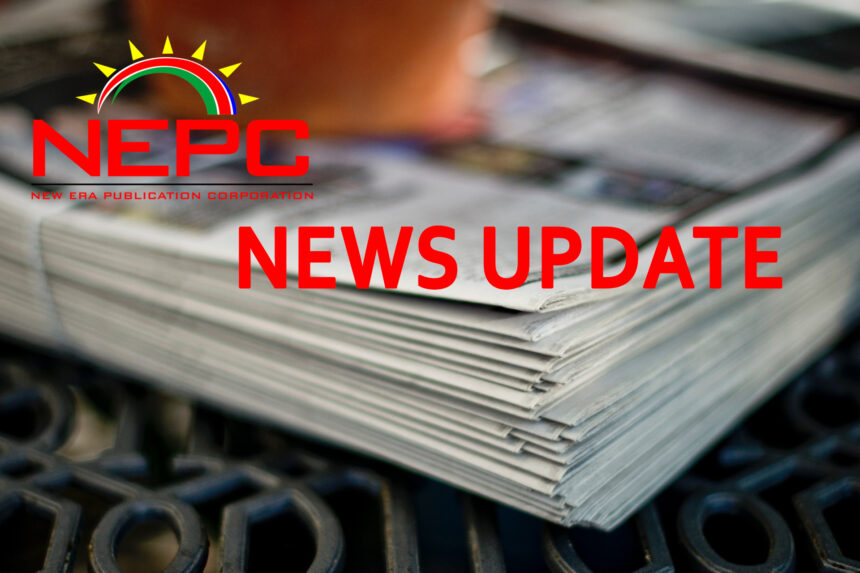RUNDU – Kavango East governor Julius Hambyuka was impressed by Rundu Town Council’s initiative to introduce prepaid water meters at the river town, saying it will inculcate valuable management lessons into residents.
He said the introduction of the prepaid water meter system will teach residents how to manage their water consumption effectively and enable the council to recover costs and sustain its operations.
Hambyuka was speaking at the launch of the prepaid water meter project at the town.
“This initiative is a significant step towards ensuring efficient water management, reducing billing disputes and securing much-needed revenue for the Rundu town council,” Hambyuka said.
Since the start of the initiative on 7 February 2025, about 1 021 facilities have been connected to prepaid meters.
“For many years the council has faced financial constraints due to unpaid bills, which also made it difficult for it to pay for the bulk water supplies from NamWater, which led to the utility placing the town on a prepaid water supply system at some point, which inconvenienced the town.
However, the council engaged NamWater and rebuilt a new relationship which came with a condition that the council should install prepaid water meters for all their clients and, by that, recover arrears through that system,” he said.
Strategic executive for community services, Fransisca Kupembona, said the council has had the plan to move from a conventional water metering system to a prepaid system that was launched on Wednesday.
“We are very happy that we have reached this milestone. It is a well-known fact, and we have been in the media that Rundu Town Council has a high debt to NamWater, which has reached more than N$300 million, and other obligations that we need to meet,” she noted.
Kupembona said the high indebtedness requires turnaround strategies to address the unprecedented challenges.
“The prepaid water metering system is one of those plans being implemented this current financial year. In preparation for this project, the council made a commitment and benchmarked with other local authorities in Namibia where such systems are being implemented and are working out very well,” she said.
Kupembona revealed that as early as 2023, staff members from the technical department responsible for infrastructure development and technical expertise, officials from the finance department responsible for the management of the billing system and revenue collection, undertook studies in Katima Mulilo and Otjiwarongo for benchmarking purposes.
The found no doubt about the success of the system.
Over two decades ago they also attempted the prepaid water system, and it failed, but they are confident that this time around it will work out for the better.
“The main aim is to roll out this prepaid meter system in all parts of our town.
What we are saying is that installation is not optional but compulsory. Installation is, however, free and we are installing one meter per house with one card. We are not connecting properties whose supplies were disconnected unless they apply for reconnection with 30% payment on the outstanding arrears plus N$600 reconnection fee,” she said.
Tariff breakdown
Pensioners will be charged N$16 per cubic metre, while the general residential units will pay N$18.64 per cubic metre, non-domestic units will be charged N$24.97 per cubic metre, businesses N$30.01 per cubic metre, and government institutions N$34.72 per cubic metre.
“We have a 70–30 repayment plan for accounts in arrears whereby 30% of every purchase goes to your outstanding debt,” she said.
“This tender was awarded to us last year, and we started installations of prepaid water meters on 7 February, and we have completed installations in Safari, and shifted to Nkarapamwe location, and now we are busy with Tutungeni. Phase one rollout of the project is about 85 % complete,” said project manager Pascal Kandjimi.
“We appreciate the town council for the opportunity entrusted to us to roll out this project,” he said.


